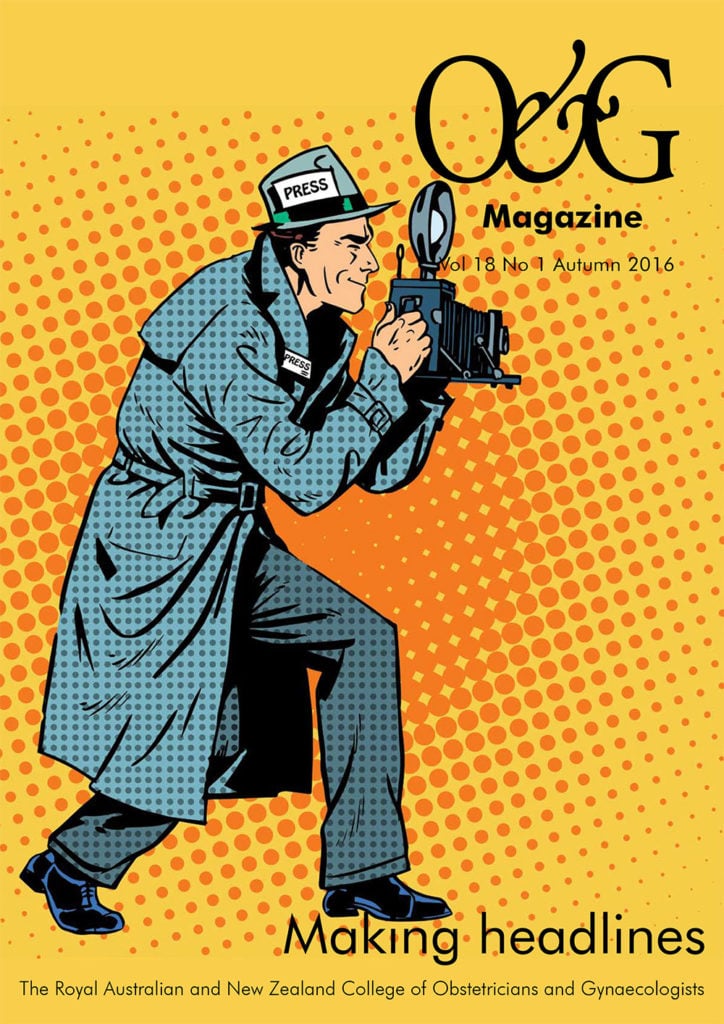As part of RANZCOG’s Strategic Plan, member engagement was identified as a key objective for the coming years. Thank you to those who completed the recent survey; information you have provided will help inform the Engagement Committee and the RANZCOG Board as to how best to improve the College’s engagement with members. Once the results have been analysed, a report willbe disseminated to members, highlighting areas for improvement and suggesting possible strategies that the College may implement.
Social media as an engagement strategy
No matter what your personal views on social media maybe – Twitter, Facebook, LinkedIn or the myriad other platforms available – there is no doubt that communication has undergone a dramatic shift in the past ten years. Information is now more readily available than ever before, and the internet has become the means by which members of the community seek knowledge, exchange ideas or share their views. Many individuals and organisations have harnessed this growing phenomenon to raise awareness of their own particular brand and the growth in popularity of some celebrities can be attributed almost entirely to their presence on social media.
‘Information is now more readily available than ever before, and the internet has become the means by which members of the community seek knowledge, exchange ideas or share their views.’
Although RANZCOG may have been somewhat slow to jump on the social media bandwagon – and there are still many who are, at the very least, ambivalent or perhaps even actively opposed – there is no doubt that social media is an important engagement strategy that can promote connectedness and enhance collaboration. The Engagement Committee has been exploring various strategies for increasing member engagement and social media has been identified as an important tool to improve the effectiveness of the College’s communication.
Of course, social media also has the potential to damage reputations, create tension and disseminate misinformation. Used incorrectly, the harm to organisations and individuals can be significant, so it is important, when considering social media as an engagement channel, that a strategic and thoughtful approach is taken. The influence of social media can be profound and long lasting; however, there is now an expectation that RANZCOG will form part of the broader online community and become more connected to the public and its members in this way.
Revalidation
As you may be aware, the Medical Board of Australia (MBA) is currently considering how best to ensure medical practitioners maintain and enhance their professional skills and knowledge, and remain fit to practice. An Expert Advisory Group (EAG) has been established and will be chaired by Prof Liz Farmer. This group had its first meeting in January 2016, with the objective being the provision of expert advice to the MBA on revalidation, including the development of one or more models for revalidation in Australia. The group will also provide advice to the MBA on how best to pilot the models, so that they can be evaluated for effectiveness, feasibility and acceptability.
The MBA has also commissioned social research to find out what the profession and the community expect that medical practitioners should do to demonstrate ongoing competence and fitness to practice. The research will canvas the views of medical practitioners with surveys sent to 15 000 randomly selected doctors. The social research will also seek to identify the views of members of the public in relation to expectations of medical practitioners demonstrating their ongoing knowledge and skills.
Senate Inquiry
The new Senate Inquiry into the ‘Medical Complaints Process in Australia’ focusing on the MBA and the Australian Health Practitioners Regulation Agency has been announced. This inquiry is co-sponsored by South Australian independent Senator Nick Xenophon and Victorian independent Senator John Madigan. The senators have raised concerns about bullying and harassment of doctors and the fairness and transparency of the medical complaints process.
RANZCOG is currently considering the issue of bullying and harassment as a priority area for action in the coming months. New resources will be developed to provide members with information and guidance in dealing with instances of bullying and harassment, and existing policies will be reviewed and enhanced where necessary.
Health Workforce Planning
The National Medical Training Advisory Network (NMTAN) was established in 2014. It provides advice to Health Ministers on issues relating to the planning, distribution and coordination of medical training and medical training plans across the medical training pipeline, from university through to vocational training. The NMTAN is currently looking at the supply and demand projections for medical specialties as some colleges are now reporting an oversupply of specialists. Although maldistribution continues to be an area of concern, there is evidence that some specialist groups may have reached saturation point, particularly in metropolitan areas.
RANZCOG continues to collect data that will help inform health workforce planning. The collection of this data is critical to ensure accuracy in modelling and projection activities, and so RANZCOG greatly appreciates the support of its members in providing this information.





Leave a Reply